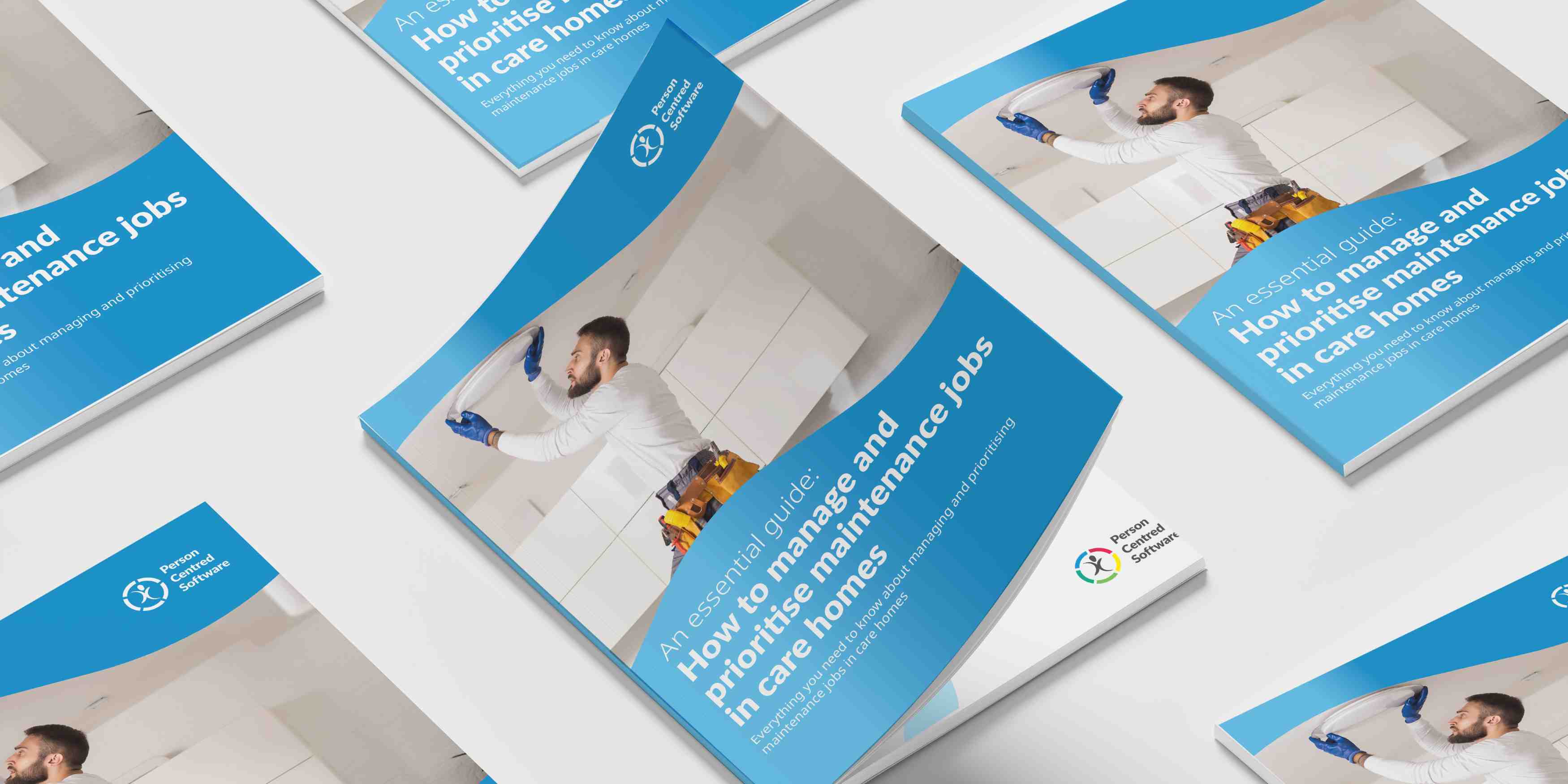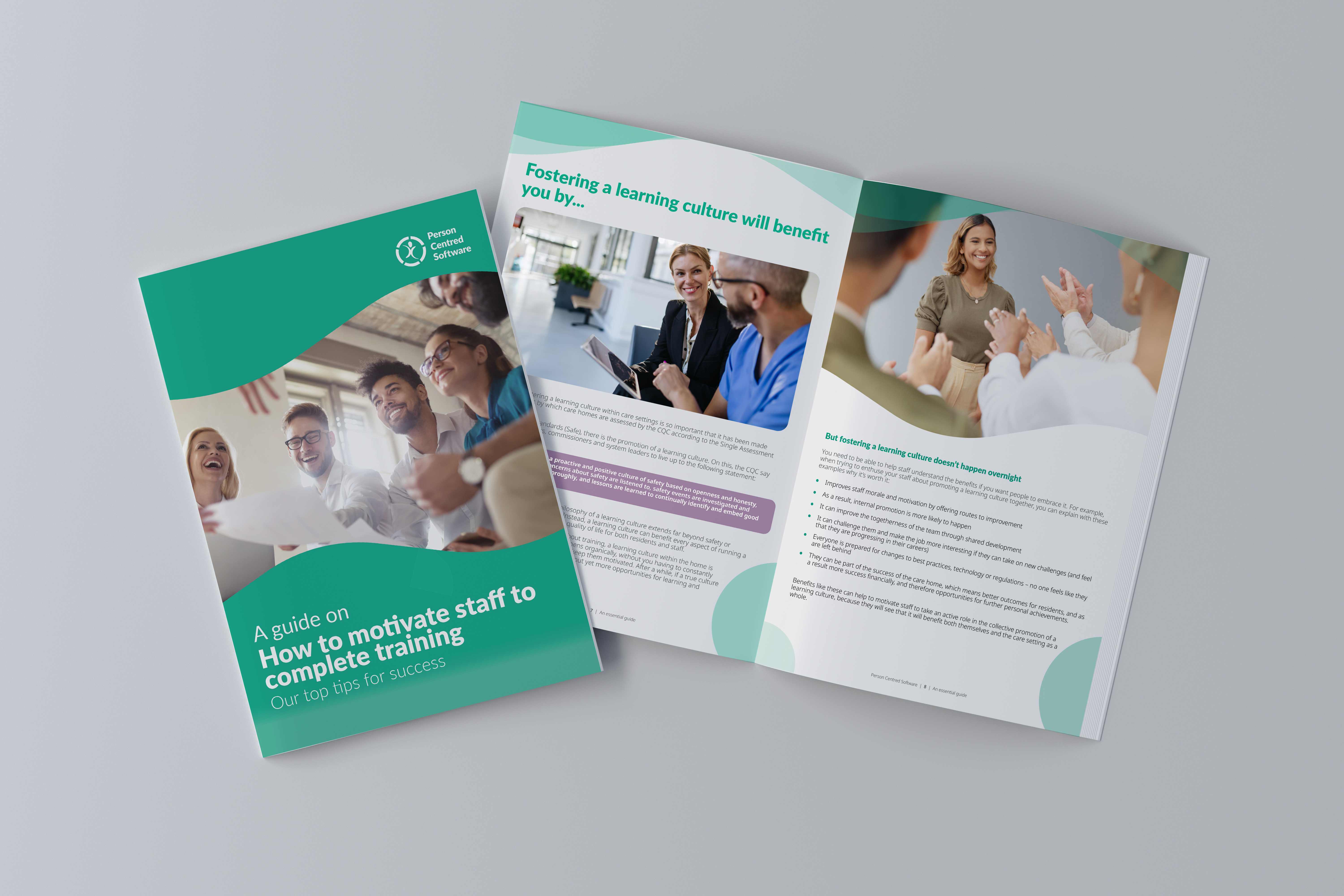
With 2020 kicking-off the decade of healthy ageing, we’re sharing 10 top tips to help you keep elderly residents in tip-top mental and physical health.
10 RESIDENT CARE TIPS FOR THE DECADE OF HEALTHY AGEING
1. Serve up a healthy menu: a balanced diet is essential for health, energy and illness prevention. Fresh, carefully planned, nutritionally balanced meals will greatly improve resident health. According to Age UK the ideal diet is low in saturated fat, contains lots of fruit and vegetables, wholegrains, oily fish, and small amounts of low-fat dairy and lean meat. Set the culinary creativity of your care home free while of course catering to specific dietary requirements.
2. Monitor resident hydration: hydration is essential for old age health. Beyond the typical side effects of headaches, tiredness and constipation all of which increase the need for one-to-one care time – dehydrated residents are more likely to fall and injure themselves. Combat these risks and improve resident wellbeing by regularly offering a variety of hot and cold drinks. Aim for a total of 1.5 litres per day which roughly equates to between six and eight drinks. Increase this on hot days, times of increased activity or if a resident is unwell. Be sure to carefully and accurately monitor the fluid intake of everybody under your care to rule out the risk of dehydration.
3. Encourage regular exercise: regular exercise in old age could help to prevent and relieve common chronic conditions such as heart disease, diabetes, depression, and arthritis. Traditionally hard to monitor, digital tools are now making, planning and tracking simple. Government guidelines recommend that older adults do 150 minutes of moderate intensity activity plus two strengthening exercises a week. Always encourage residents to have a daily walk, no matter how short, but also offer aerobic, balance and muscle strengthening activities. Tai chi, Pilates and resistance band exercises are ideally suited to the elderly. Download our free monthly Activities Calendar.
4. Brain training: as life expectancy continues to rise, cognitive decline is becoming a more prevalent issue. Maintaining an active mind is a vital line of defence for the elderly, so be sure to encourage residents to continue intellectually stimulating hobbies such as reading, crosswords, sudoku and card games. You could take things a step further by encouraging learning – how about dance classes or a new language?
5. Breathe in the benefits of fresh air: from mental wellbeing to healthy blood pressure, digestion and immunity – fresh air is incredibly important. Outdoor hobbies such as gardening, walking or even just sitting outside are great for residents. While this is far easier to do in milder months, the winter can pose a challenge. Having healthy gardens and encouraging wildlife can greatly help in colder months. If there’s nothing you can do to get an elderly resident outdoors, even opening the window for short periods could have benefits.
6. Set healthy sleep routines: older adults need just as much sleep as younger adults, but statistically they get less. During sleep the body repairs itself and the mind switches off. Reduced sleep can result in depression, irritability, memory loss and increased fall risk. Help your residents to get their seven to nine hours per night by developing a regular bedtime routine. Keep their rooms dark, quiet and try to avoid serving caffeinated drinks late in the day. 10 resident care tips for the decade of healthy ageing
7. Create a truly social care environment: the elderly just like the young, crave stimulating company so aim to create an environment that is genuinely sociable. Many care homes put on programmes of communal events including bingo, bowls and card evenings. It is also becoming increasingly common to see pubs! A great way to enhance social vibrancy while creating an environment conducive to improved outcomes, is to match resident and carer by common interests i.e. travel, sport or cookery. This will make care visits much more stimulating and give residents something to look forward to.
8. Be meticulous with medication administration: this process is notoriously open to human error – don’t leave it to chance! Record all administration of medication as quickly, safely and accurately as possible to ensure essential medication isn’t missed or mistakenly doubled up. Digital tools such as care planning apps make this process immediate. As well as being vital for resident health, it also acts to safeguard your business.
9. Personal health and hygiene: frequently check residents over for bed sores, pressure ulcers, general physical condition and cleanliness. Rapid diagnosis and active management of health and hygiene issues will help you to improve general health and wellbeing outcomes. Boost these efforts with effective digital recording processes – you never know when you need that vital audit trail!
10.Oral hygiene: medical research has linked poor oral health to diabetes, strokes, heart disease, lung disease and dementia. Most oral diseases are largely preventable through the regular removal of plaque, so it is crucial to ensure residents have good daily oral care routines. Digital recording enables staff to flag issues, so they can be addressed quickly by dental professionals.
Each of the 10 above areas is vital to healthy ageing, but notoriously difficult to manage, maintain and crucially, evidence.
With paper processes difficult to record every interaction, the icon-driven Mobile Care Monitoring system from Person Centred Software enables daily records spanning everything from fluid consumption and medication administration to exercise and mental stimulation, to be recorded instantly. The immediate generation of accurate, detailed care reports saves every carer an hour a day of paperwork and enables them to focus exclusively on hands-on care.
Person-centred care plans can be tailored to meet the social and medical needs of the people you support. Residents’ preferences and important information is available at the point of care, when and where it’s needed.
By immediately capturing highly detailed information about care interactions, healthcare concerns can be immediately flagged, and additional resident support can be fast-tracked. Digital information feeds automatically into reports and charts, providing evidence of the care support to meet the NICE Quality Standards and CQC’s Key Lines of Enquiries.
94% of CQC inspected homes using Mobile Care Monitoring are rated Good or Outstanding.







.webp?width=80&height=80&name=HTD%20Awards%202023%20Badge%20(4).webp)














